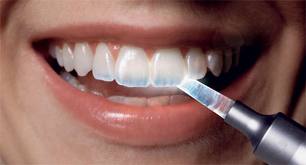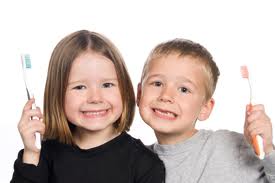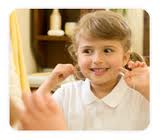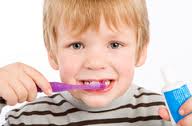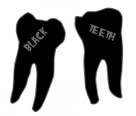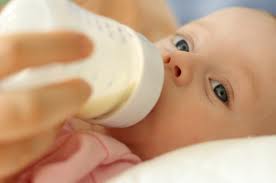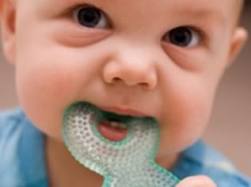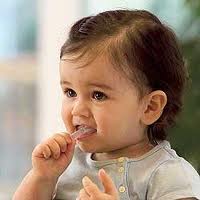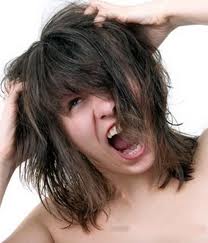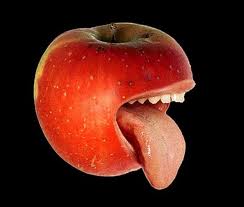 “An apple a day keeps the dentist away” - I love this proverb, but reading a fellow blogger’s, Stasha’s post about a funny loo accident/incident involving an apple (don’t ask me how I associated, I am quite strange, huh?) made me think of an important thing about brushing that I feel, I have to share with you.
“An apple a day keeps the dentist away” - I love this proverb, but reading a fellow blogger’s, Stasha’s post about a funny loo accident/incident involving an apple (don’t ask me how I associated, I am quite strange, huh?) made me think of an important thing about brushing that I feel, I have to share with you.
I am pretty sure that a lot of us don’t know what effect eating some kind of food can have on our tooth enamel. Acid wear can make your teeth more sensitive to temperatures and it also makes your teeth more prone to decay. This is called acid erosion. Cola contains phosphoric acid, while juices have natural citric acid and ascorbic acid. Both of them can damage your tooth enamel.
These are the factors that can cause acid erosion:
- acidic beverages (soda pops and soft drinks, fruit juices and wine) as they contain large amounts of citric acid
- grazing through the day
- brushing your teeth directly after eating or drinking anything else than water
- constant vomiting (bulimia) or reflux causes acidic contents to be in frequent contact with the teeth, developing erosion
This is how you should do to avoid acid erosion:
- Rely on dental floss during the day (only brush in the morning and in the evening)
- Rinse your mouth after food consumption during the day
- Drink a lot of water
- Avoid snacks and constant snacking during the day, letting your mouth getting back it’s acid balance
- Avoid brushing your teeth for at least half an hour after consuming acidic food or drink (and brush gently when you brush)
- You can reduce the contact of acidic drinks with your teeth by using a straw
- Try to include milk or other dairy products in your diet
Did you know about this already? Do you have some more tips for avoiding tooth erosion? Please share them!

